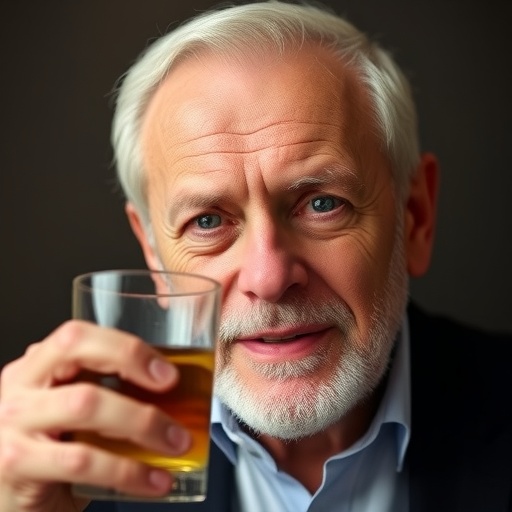Anthony Hopkins Celebrates 50 Years of Sobriety: The Pivotal Moment That Transformed a Hollywood Legend’s Life
In a candid interview that has captivated fans worldwide, Anthony Hopkins, the iconic Hollywood legend, marks a monumental milestone: 50 years of sobriety. The Oscar-winning actor, known for his chilling portrayal of Hannibal Lecter in The Silence of the Lambs, revealed the harrowing life-changing moment that propelled him away from the grips of alcohol addiction, a battle that once threatened to derail his illustrious career. As Hopkins reflects on this journey during a recent interview with BBC Radio 4, his story serves as a beacon of hope for millions grappling with substance abuse in an industry notorious for its excesses.
- The Fateful Christmas Eve: Hopkins’ Rock Bottom Revelation
- From Whiskey-Fueled Chaos to Sober Stardom: Rebuilding a Career
- Hollywood’s Hidden Battle: Alcohol’s Grip on Tinseltown Stars
- Timeless Wisdom: Hopkins Shares Sobriety Lessons in Exclusive Interview
- Inspiring Recovery Worldwide: Hopkins’ Legacy Beyond the Screen
Hopkins, now 86, shared that his path to sobriety began on a fateful Christmas Eve in 1975, when he found himself alone, intoxicated, and on the brink of despair in a London hotel room. “I was dying,” he recounted bluntly in the interview, his voice steady yet laced with the weight of memory. This raw admission underscores not just personal triumph but a broader narrative about resilience in the face of Hollywood’s glittering yet perilous underbelly. With over five decades clean, Hopkins’ achievement stands out amid statistics from the National Institute on Alcohol Abuse and Alcoholism (NIAAA), which report that only about 30% of individuals with alcohol use disorder achieve long-term recovery.
The actor’s openness comes at a time when discussions around mental health and addiction are gaining unprecedented traction in the entertainment world. Celebrities like Robert Downey Jr. and Drew Barrymore have similarly shared their recovery stories, but Hopkins’ half-century mark elevates his testimony to legendary status. As he approaches his ninth decade, Hopkins continues to inspire, proving that redemption is possible even after years of self-destruction.
The Fateful Christmas Eve: Hopkins’ Rock Bottom Revelation
Delving deeper into the interview, Hopkins painted a vivid picture of the night that became his turning point. It was December 24, 1975, and the Welsh-born actor was in the midst of a downward spiral fueled by relentless alcohol consumption. Having emigrated to the United States just a year earlier in pursuit of bigger roles, Hopkins was far from home, isolated in a Beverly Hills hotel. “I had a bottle of vodka and no money,” he recalled. “I thought, ‘This is it. I’m finished.'”
What followed was an epiphany that Hopkins attributes to divine intervention—or perhaps sheer survival instinct. Staring at his reflection in the mirror, he made a silent vow to quit drinking immediately. No rehab, no formal program at first; just a raw, unyielding commitment. In the interview, he emphasized the immediacy of his decision: “I put the bottle down and never touched it again. That was 50 years ago.” This spontaneous sobriety contrasts sharply with modern recovery models, which often advocate for structured support like Alcoholics Anonymous (AA). Yet, for Hopkins, it worked, aligning with NIAAA data showing that personal motivation can be a powerful catalyst for change.
Reflecting on the cultural context of 1970s Hollywood, Hopkins described an era where alcohol flowed freely on sets and at parties. “It was the done thing,” he said. “Everyone drank—stars, directors, everyone.” His own struggles began in his youth in Port Talbot, Wales, where he admitted to binge-drinking as a teenager to cope with insecurities. By the time he reached stardom with roles in films like The Lion in Winter (1968), alcohol had become a crutch for the pressures of fame. The Christmas Eve incident, however, shattered that illusion, forcing him to confront the void it left behind.
Statistics bolster the gravity of his story. According to the World Health Organization (WHO), alcohol contributes to 3 million deaths annually worldwide, with celebrities often facing amplified risks due to easy access and high-stress environments. Hopkins’ survival rate-defying journey highlights how one moment of clarity can pivot a life from ruin to redemption, offering a narrative arc more compelling than any script he’s ever read.
From Whiskey-Fueled Chaos to Sober Stardom: Rebuilding a Career
Post-1975, Hopkins’ transformation was nothing short of remarkable. In the years following his sobriety pledge, he channeled the discipline forged from quitting alcohol into his craft, emerging as one of cinema’s most versatile talents. The Hollywood legend credits his clear-headed state for landing pivotal roles that defined his legacy. “Sobriety gave me focus,” he stated in the interview. “I could remember lines, connect with characters—things I couldn’t do before.”
Consider his Academy Award-winning performance as Hannibal Lecter in 1991’s The Silence of the Lambs. The role demanded intense psychological depth, something Hopkins might not have accessed amid the fog of addiction. Director Jonathan Demme later praised Hopkins’ precision, noting in a 1991 Variety profile how the actor’s preparation was “laser-sharp.” Similarly, in The Remains of the Day (1993), Hopkins portrayed a repressed butler with such subtlety that it earned him another Oscar nomination. These successes weren’t accidental; they were the fruits of a sober mind unburdened by hangovers and regrets.
Hopkins’ career trajectory post-sobriety is a masterclass in reinvention. From stage work with the National Theatre in London to blockbuster franchises like Thor (where he played Odin), his resume spans genres and eras. Box office data from The Numbers illustrates his enduring appeal: films featuring Hopkins have grossed over $10 billion globally. Yet, he humbly attributes much of this to sobriety. In the recent interview, he shared a lighter anecdote: “I used to show up to auditions reeking of booze. Now, I show up ready.”
Beyond personal anecdotes, Hopkins’ story intersects with Hollywood’s evolving stance on addiction. The industry, once a haven for substance abuse—think of legends like Richard Burton, Hopkins’ friend and fellow Welshman who died of alcoholism in 1984—now promotes wellness initiatives. Organizations like the Hollywood Health & Society advocate for on-set support, and Hopkins has quietly supported such efforts, donating to recovery programs without fanfare.
To quantify his impact, consider recovery statistics: The Substance Abuse and Mental Health Services Administration (SAMHSA) reports that long-term sobriety like Hopkins’ correlates with improved mental health and professional longevity. For a Hollywood legend like him, this has meant not just survival but thriving, with recent roles in The Father (2020) earning yet another Oscar and critical acclaim for his portrayal of dementia.
Hollywood’s Hidden Battle: Alcohol’s Grip on Tinseltown Stars
Hopkins’ reflection on 50 years of sobriety casts a spotlight on alcohol‘s pervasive role in Hollywood, an industry where glamour often masks profound struggles. In his interview, the Anthony Hopkins dissected this culture with unflinching honesty: “Drinking was social, but it was destructive. Many great talents lost to it.” He name-dropped contemporaries like Burton and Elizabeth Taylor, whose tumultuous lives were marred by substance issues, serving as cautionary tales.
Historical data paints a stark picture. A 2019 study in the Journal of Substance Abuse Treatment found that actors face a 50% higher risk of alcohol dependency than the general population, attributed to irregular schedules, rejection, and high visibility. Hopkins himself navigated this minefield in the 1960s and ’70s, when alcohol was as common as craft services. “Parties were endless,” he recalled. “Champagne for breakfast, whiskey for lunch.” His decision to quit disrupted this norm, setting him apart from peers who succumbed.
Today, the landscape is shifting. High-profile cases, such as Matthew Perry’s battle with addiction detailed in his 2022 memoir Friends, Lovers, and the Big Terrible Thing, have normalized conversations around recovery. Hopkins applauds this in the interview: “It’s good that people talk now. Back then, it was shame.” He also highlighted supportive networks like AA’s celebrity meetings, which he attended sporadically in his early sober years.
Yet, challenges persist. The Centers for Disease Control and Prevention (CDC) notes that excessive alcohol use costs the U.S. $249 billion annually in healthcare and lost productivity—figures that hit Hollywood hard, with rehab stints often making tabloid headlines. Hopkins’ 50-year streak offers a counter-narrative, proving that sustained sobriety can lead to not just personal peace but professional pinnacle.
In a broader societal lens, Hopkins’ story resonates amid rising awareness. The WHO’s 2023 report on alcohol policy urges global action, and celebrities like him amplify these calls. His journey from alcohol-soaked nights to sober triumphs underscores the human cost of inaction, urging the industry to prioritize wellness over excess.
Timeless Wisdom: Hopkins Shares Sobriety Lessons in Exclusive Interview
As Anthony Hopkins approaches this golden anniversary of sobriety, his interview brims with sage advice drawn from half a lifetime of lessons. “Discipline is freedom,” he declared, a mantra that has guided him through temptations and triumphs. For aspiring actors tempted by Hollywood’s party scene, Hopkins warns: “Don’t start. If you do, stop now.” This directness, delivered with his signature gravitas, cuts through the noise of celebrity platitudes.
He elaborated on the psychological shifts post-quitting alcohol. Early days were toughest, marked by irritability and isolation, but journaling and theater immersion helped. “Acting saved me,” he said. “It gave purpose.” Quotes from his interview reveal vulnerability: “I missed the escape at first, but sobriety brought clarity I never knew.” This echoes therapeutic approaches in cognitive behavioral therapy (CBT), which SAMHSA endorses for addiction recovery.
Hopkins also touched on spirituality, crediting a “higher power”—a nod to AA principles—without proselytizing. “Whatever you call it, believe in something bigger,” he advised. His routine now includes painting, piano playing, and daily walks, activities that replaced alcohol‘s void. At 86, he remains active, with upcoming projects like a West End revival of King Lear, where his sober precision will shine.
Family plays a role too. Hopkins, married to Stella Arroyave since 2003, credits her support, and he’s mended ties with daughter Abigail from his first marriage. “Sobriety healed relationships,” he noted. This personal restoration extends to philanthropy; he’s an ambassador for the National Recovery Month, sharing his story at events to destigmatize addiction.
Experts weigh in on his methods. Dr. Nora Volkow, NIAAA director, has praised such celebrity testimonies for boosting public engagement with recovery resources. Hopkins’ approach—cold turkey with self-reliance—may not suit all, but its success rate for him is undeniable, inspiring tailored paths for others.
Inspiring Recovery Worldwide: Hopkins’ Legacy Beyond the Screen
Looking ahead, Anthony Hopkins‘ 50 years of sobriety position him as a enduring force for change in Hollywood and beyond. In his interview, he expressed optimism about the industry’s future: “More stars are getting help. It’s a new era.” With initiatives like the Time’s Up Healthcare Fund addressing mental health, his story fuels momentum for systemic support.
Hopkins plans to continue advocacy, perhaps through a memoir or documentary, to reach younger audiences. “If my words help one person put down the bottle, it’s worth it,” he said. Globally, his influence could amplify WHO campaigns, where alcohol-related deaths in Europe alone number 200,000 yearly. As a Hollywood legend, his platform amplifies these statistics into actionable hope.
Professionally, Hopkins eyes roles exploring human frailty, drawing from his experiences. Upcoming films like Locked (2024) promise to showcase his depth, informed by a lifetime of clarity. For fans and strugglers alike, his journey signals that it’s never too late for transformation—50 years sober is not an endpoint, but a testament to ongoing vitality.
In an age of fleeting fame, Hopkins’ enduring sobriety reminds us that true legends are forged in quiet battles won daily. As he toasts this milestone with tea rather than spirits, the world watches, inspired to pursue their own paths to freedom.








